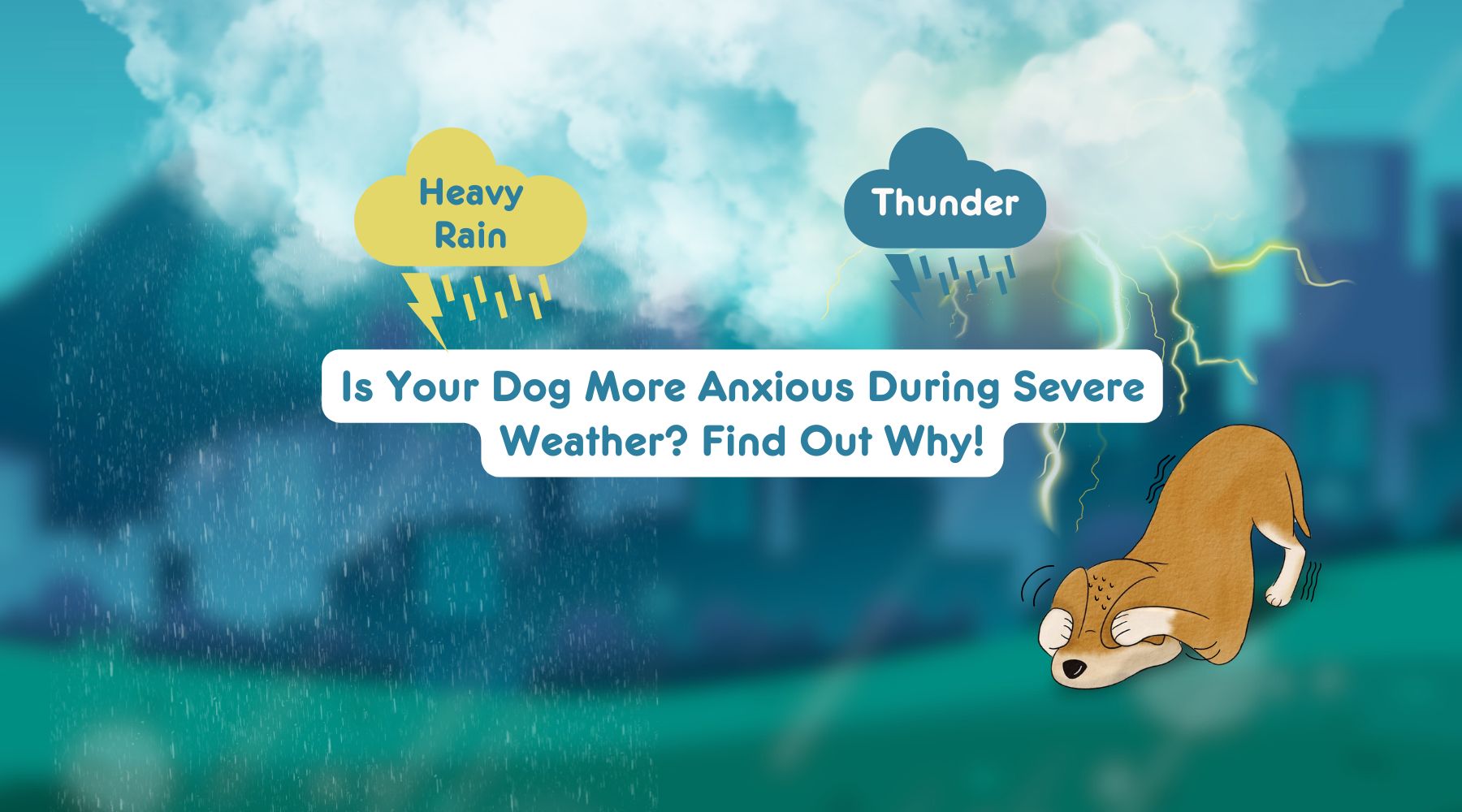
Do Your Dog Get Scared of Thunder? Learn How to Properly Soothe Dog's Anxiety.
Thunderstorms and typhoons are common in the summer, leading to more frequent and intense thunder. This can cause dogs at home to bark non-stop, become frightened, or look for places to hide.
Each dog may react differently when frightened by thunder. Some may destroy household items, howl loudly, or curl up in a corner. Unfortunately, owners often make two common mistakes: some scold or punish their fearful dogs, while others offer excessive verbal or physical comfort to calm them.
It’s important to understand that dogs may not rest well or behave normally if they feel fearful. They may bark incessantly due to extreme anxiety and sensitivity. When a dog is in a state of fear, the first step is to acknowledge these behaviors and provide an accommodating environment.
Why Are Dogs Anxious During Bad Weather?
Dogs are highly sensitive to sounds, smells, and environmental changes. Thunderstorms bring a host of factors that may frighten them:
- Changes in air pressure
- Changes in light
- Lightning flashes
- The unique smell of rain
- The sound of rain
Dogs often detect bad weather earlier than humans. During storms, static electricity in the air can cause their fur to tingle, adding another layer of anxiety. Signs of anxiety may include:
- Dilated pupils
- Excessive salivation
- Increased heart rate
- Rapid breathing
- Trembling
- Pacing
- Incontinence
- Excessive aggression or attempts to escape
Understanding Dog FAS Scores and Levels
To help alleviate a dog’s anxiety, it’s essential to assess the degree of fear, anxiety, and stress they are experiencing. The FAS (Fear, Anxiety, Stress) concept classifies these emotional states into three levels: low, medium, and high. By determining a dog’s FAS score, owners can apply appropriate coping methods to reduce stress and improve emotional health.

Credit: Spectrum of Fear, Anxiety, and Stress (FAS Score) in Dogs | Pupford
2 Effective Ways to Soothe a Dog’s Emotions
1. Establish Daily Stress-Relief Methods
It’s best to start building resilience before a storm hits. Create calming rituals in daily life, such as:
- Playing with your dog in a designated safe space. Make it a positive environment so they know they have a refuge during storms.
When a storm arrives, let your dog hide in this safe spot, ideally indoors and with minimal windows. Provide a comfortable mat, blankets, water, food, and a few toys. Keep the lights on and play soothing music or turn on the TV to help mask storm sounds.
2. Managing Emotional Health Through Nutrition
Consider supplements like Purina Pro Plan Calming Care. This probiotic formula contains Bifidobacterium longum (BL999), scientifically proven to help reduce anxiety in dogs.

How Calming Care Works:
- Supports Gut-Brain Axis: Improves gut microbiota, influencing calm behavior.
- Reduces Stress Indicators: Lowers cortisol levels and anxiety-driven actions.
- Promotes Calm Behavior: Helps stabilize heart activity during stressful events.
Results and Usage:
- Notable effects appear after six weeks of consistent use.
- Works best when combined with long-term behavioral and environmental strategies.
Frequently Asked Questions
Q: How do Pro Plan Calming Care probiotics stabilize dog emotions?
A: These probiotics use Bifidobacterium longum (BL999) to help dogs maintain calm behavior. By influencing the gut-brain axis, dietary changes in the microbiome can reduce anxiety-driven behaviors.
Q: How long does it take for Pro Plan Calming Care probiotics to be effective?
A: Research shows that administering one packet daily for six consecutive weeks yields results. For best outcomes, use it as part of a comprehensive behavioral and environmental adjustment plan.
Q: Is there scientific research supporting the effectiveness of Pro Plan Calming Care probiotics?
A: Purina has studied BL999’s effects on dog anxiety and presented findings at the 2018 American Veterinary Behavioral Academy conference. Additional research at Colorado State University also supports its benefits in cats.

Comments
Leave a comment